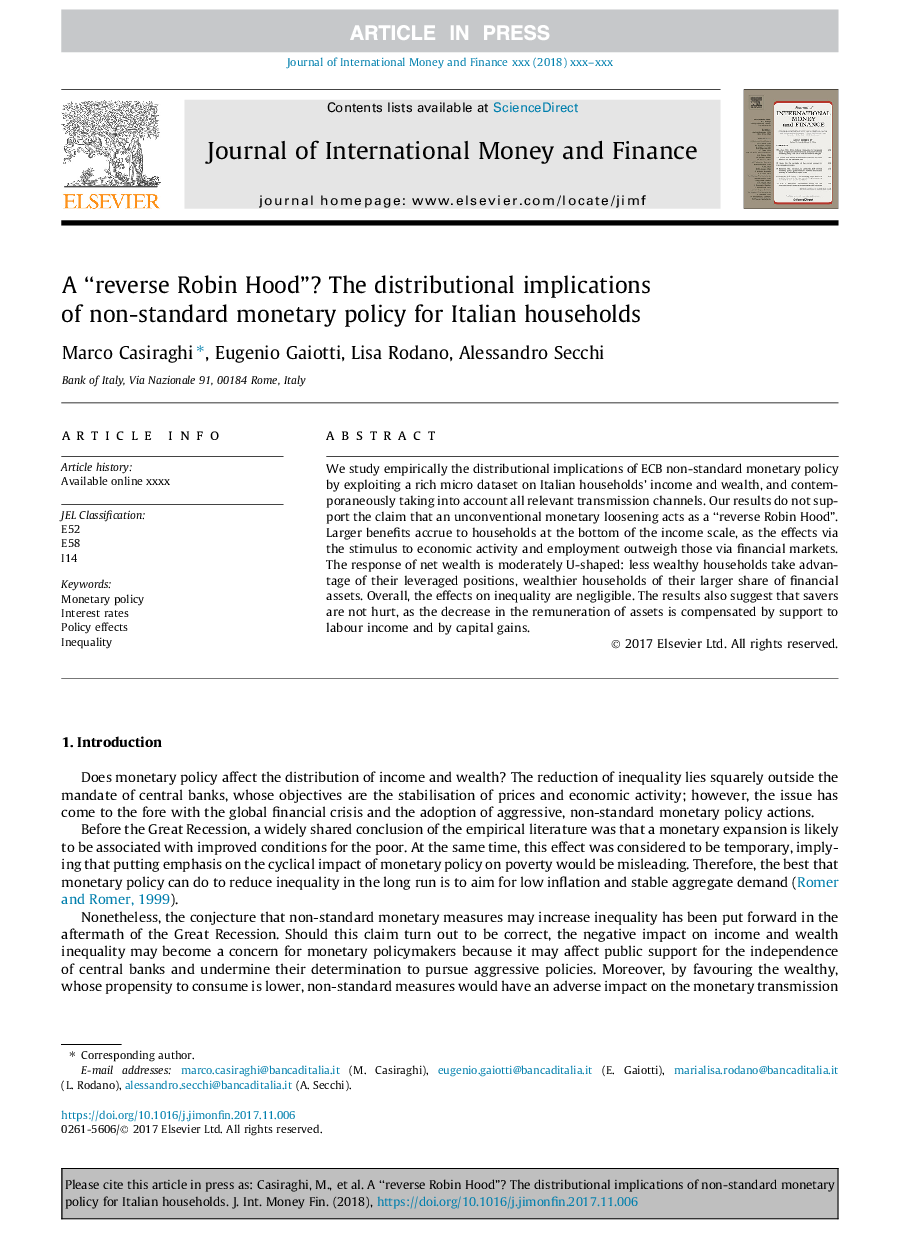| Article ID | Journal | Published Year | Pages | File Type |
|---|---|---|---|---|
| 7365203 | Journal of International Money and Finance | 2018 | 21 Pages |
Abstract
We study empirically the distributional implications of ECB non-standard monetary policy by exploiting a rich micro dataset on Italian households' income and wealth, and contemporaneously taking into account all relevant transmission channels. Our results do not support the claim that an unconventional monetary loosening acts as a “reverse Robin Hood”. Larger benefits accrue to households at the bottom of the income scale, as the effects via the stimulus to economic activity and employment outweigh those via financial markets. The response of net wealth is moderately U-shaped: less wealthy households take advantage of their leveraged positions, wealthier households of their larger share of financial assets. Overall, the effects on inequality are negligible. The results also suggest that savers are not hurt, as the decrease in the remuneration of assets is compensated by support to labour income and by capital gains.
Related Topics
Social Sciences and Humanities
Economics, Econometrics and Finance
Economics and Econometrics
Authors
Marco Casiraghi, Eugenio Gaiotti, Lisa Rodano, Alessandro Secchi,
